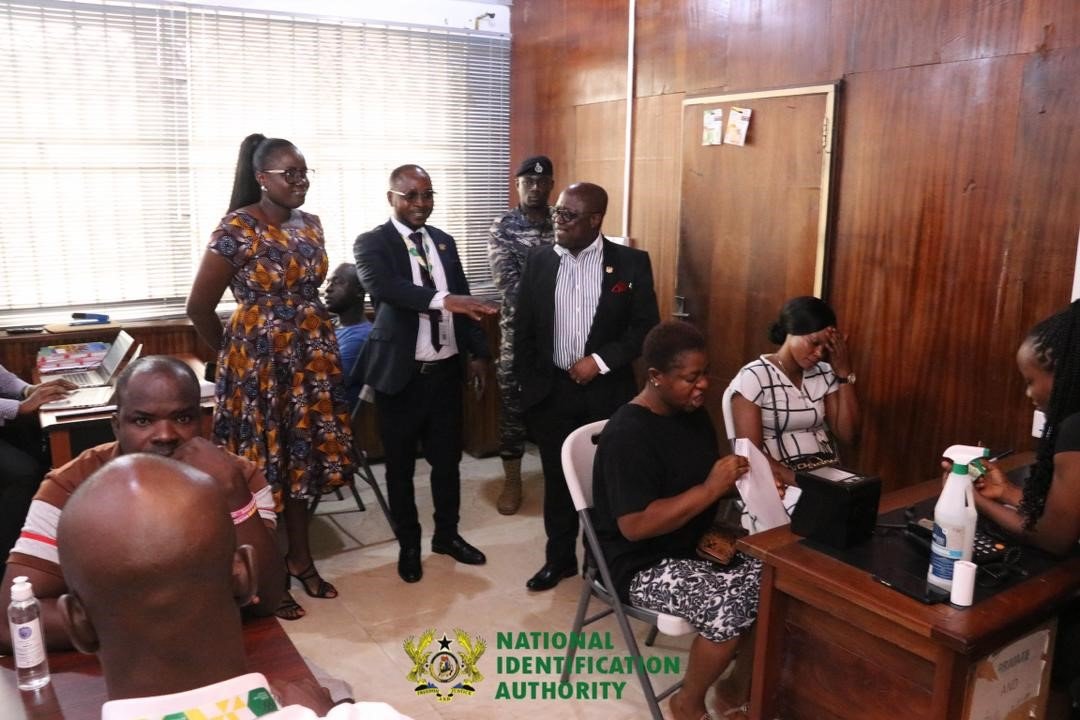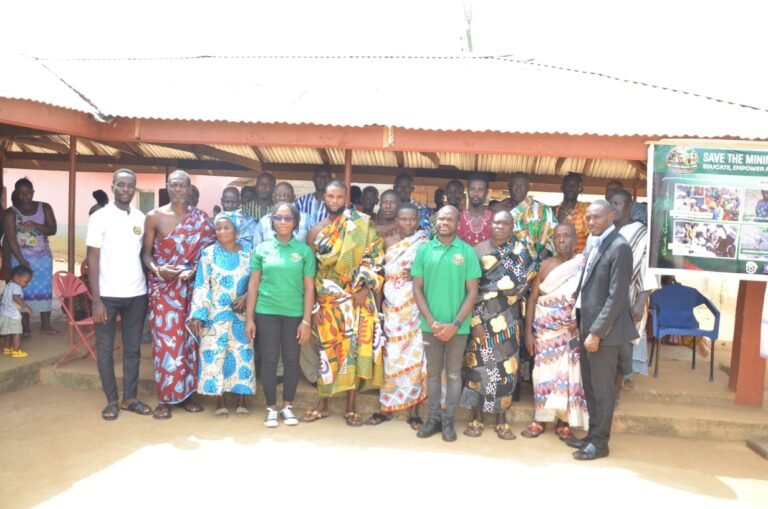
(Standing 1st right) Executive Secretary of the NIA, Prof. Kenneth Agyemang Attafuah, interacts with some officers during the visit

The National Identification Authority (NIA) has conducted series of visits to its regional offices across the country to engage with staff in order to bolster their dedication to the National Identification System (NIS) Project.
The Executive Secretary of the NIA, Prof. Kenneth Agyemang Attafuah, led this exercise which began on June 6, covering 16 regional offices and 276 district registration offices.
Interacting with the officers during the visit, Prof. Attafuah shed light on concerns over conditions of service for staff and management, and the sustainability of the NIS Project.
He promised to address the challenges stemming from shortages of blank cards since July 2022 and backlogged card issuances post the 2020 mass registration. Accordingly, he reassured the staff about the project’s steadfastness.
Resuming operations
The NIA Boss also announced that government would ensure the availability of blank cards by mid-August 2023, enabling NIA to resume operations at full capacity.
He also touched on the ways of improving registration services and revenue streams. He revealed tha plans include setting up Premium Registration Centres in key cities and towns, and expanding the number of locations for registering foreigners’ resident in Ghana for over three months, under the Foreigner Identification Management System (FIMS) Project.
“Another crucial focus will be resolving the backlog of card issuance nationwide. Additionally, strategies are currently in place for the registration of the outstanding population aged 15 and above,” he indicated.
Prof. Attafuah also clarified the process for registering Ghanaians aged 0-6 years, in collaboration with the Ghana Health Service and the Births and Deaths Registry. He pointed out that, for those aged 6-14 years, collaboration with the National Health Insurance Authority (NHIA) was detailed.
He emphasised the NIA’s commitment to excellence in identifying new ways to deepen staff dedication and enhance communication within the organization. Prof. Attafuah highlighted training opportunities covering topics like law, integrity and patriotism, industrial relations, and administrative justice.




